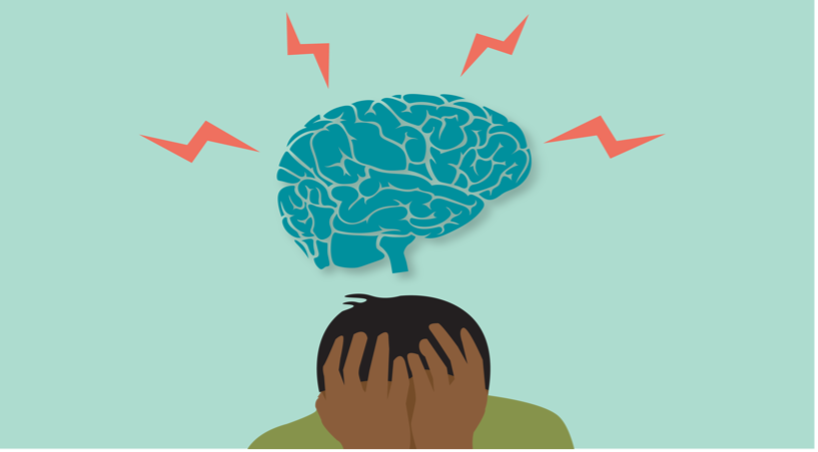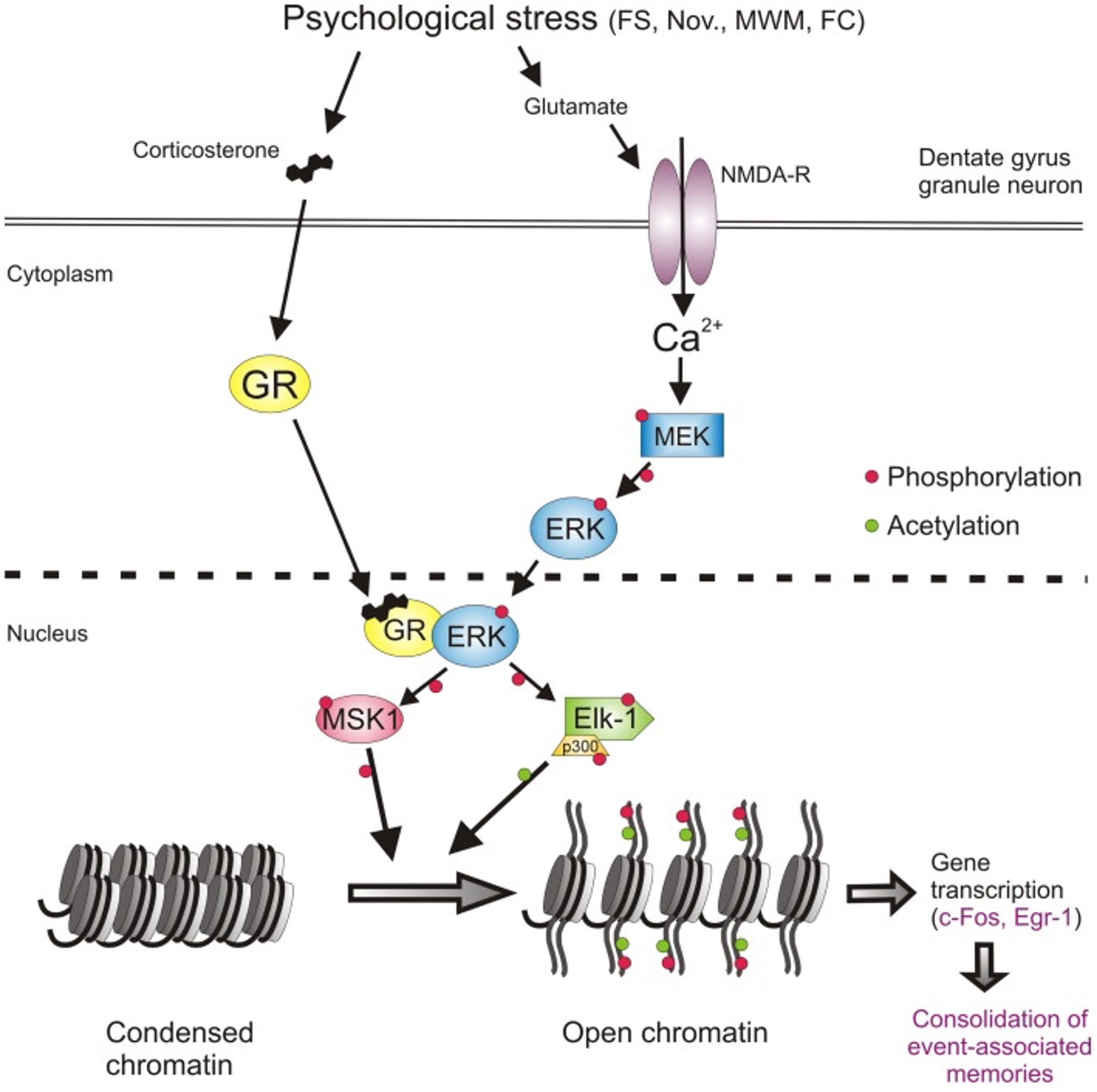Picture 1: Stress and the Brain[1]
Most people face stressful situations often in their days, and we move on and go about our days. But what happens when we endure a psychologically stressful, traumatic event, how does that impact us and how does it impact our brain?
When you are exposed to long-term and chronic stress, this can lead to behavioral changes and changes in epigenetic regulation for gene transcription. When we are in traumatic or psychologically stressful situations we tend to form stronger memories, as it might be our bodies natural defense mechanism towards the event. However, creating stronger memories can also lead to the development of anxiety disorders like post-traumatic stress disorder (PTSD). PTSD is a disorder that can have serious comprimieses for the person’s quality of life over a long period of time, even lifelong. PTSD can develop as a result of damage and/or dysfunction of the dentate gyrus (DG) and other parts of the hippocampus[2]. About 10-20% of people who experience a traumatic event develops a stress-related disorders[3], such as PTSD.
Memory formation
We form memories because it allows us to interact in our environment, and to have the ability to build representations, understand and adapt to changes in the environment. In support of stronger memories being formed during stressful events, in hippocampus based behavioral models it was found that when we are exposed to a stressful event the stress-indices glucocorticoid hormones enhance the memory consolidation. The enhanced memory consolidation happens at the DG cellular level. Inputs from the hypothalamus and amygdala results in excitability of dentate neurons which can translate to an enhanced likelihood of NMDAR mediated activation of dentate granule neurons. This further leads to the activation of signaling, epigenetic, and changes within gene transcription that are all required for consolidation of memory[4]. Additionally, an important hormone is glucocorticoids, which are needed for memories associated with stressful challenges to be acquisitioned and consolidated.
What happens in the brain when a person is exposed to psychological stress?
When someone experiences psychological stress that activates the GR and NMDAR-ERK-MAPK pathways. GRs bind to intracellular receptors, and affects gene expression. The interaction of ERK1/2 and GR facilitates PERK1/2 to phosphorylate MSL1/2 and Elk-1. A result of this is the phosphorylation and acetylation of the histone dual mark H3S10p-K14ac, which allows genre transcriptions of the immediate early genes (IEGs), c-fos and erg1. These IEGs require the formation of H3S10p-K14ac in order to open up for transcription binding and the induction of gene transcription. This initiation of gene transcription is important for consolidation of memory formation with a traumatic or psychologically stressful event[5]. Figure 1, shows the signaling patway after exposure to psychological stress. So when a person is exposed to prolonged or psychological stressors there is an increased stimulation. And a factors that play a major role in modulating the effects of anxiety is GABA, which effects the responsiveness of dentate neurons to stressful events. GABA can be essential to prevent anxiety.
Figure 1: the psychological stress-activated signaling pathway that happens in the dentate gyrus, which modifies gene transcription, and consolidates memory formation and behavioral responses.
Animal Models
The findings relating the pathways has been supported by animal models that study forced swimming induced behavioral immobility. The forced swimming test, rats or mice are put in a container that is filled with water and which they cannot stand in, testing how long the behavior of struggling and climbing movements appear, before an immobile or floating posture happens. Their immobility response is related to the NMDA-MEK-ERK-ELK/MSK pathway, and the phosphorylation. Alongside with GRs which in the DG are important for the consolidation of the behavioral response from the mice or rats.
Environmental factors
There has been suggestions that people who are more anxious are more likely or have an increased risk for developing PTSD after encountering a traumatic event[7]. Generally, feelings of anxiety are caused by environmental factors, and in relation to epigenetics, it shows how our behavior and environment cause changes in how the brain works. Which can be seen in the animal models and the study for forced swimming as this posed as an environmental challenge for the mice and rats. So, it might pose a question or suggestion that there might be genetic factors or implications that makes certain people more susceptible or vulnerable to develop PTSD? This topic would be interesting for further research.
Bibliography
[1] https://edrcsv.org/mercury-news-pandemic-stress-prematurely-aged-teens-brains-stanford-study-finds/
[2][3][4][5][6][7] Reul, J. M. H. M. (January 2014) Making memories of stressful events: a journey along epigenetic, gene transcription, and signaling pathways. Front Psychiatry, volume 5. https://www.frontiersin.org/journals/psychiatry/articles/10.3389/fpsyt.2014.00005/full

